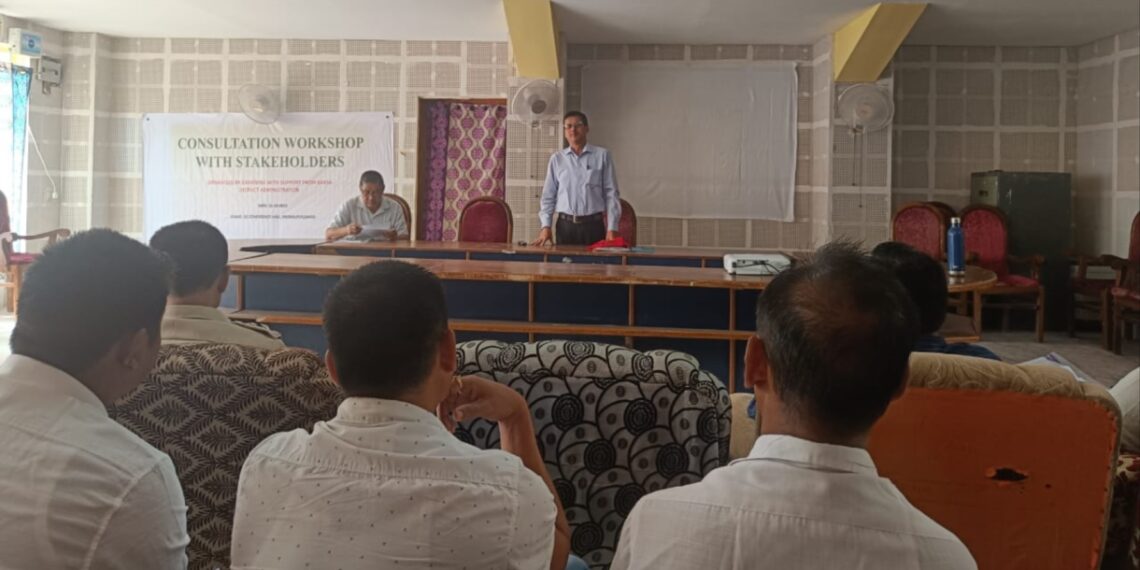GUWAHATI: The growing human-elephant conflict (HEC) in Assam has urged multiple government departments to work cohesively towards its mitigation.
In a recent consultation held at the Mushalpul Civil Administration Office, Baksa, representatives converged to adopt a comprehensive strategy for managing the challenges posed by roaming wild elephant herds in human settlements around the region.
The workshop witnessed participation from diverse sectors. Among the attendees were Additional Deputy Commissioner (ADC) of Baksa, Arun Kumar Brahma, officials from the Forest, Veterinary, Agriculture, Soil Conservation, Irrigation, Police, Education, Health, and KVK departments, and representatives from local tea estates.
ADC Arun Brahma, in his inaugural address, highlighted the urgent need for a unified approach from all stakeholders. Stressing on spike in human population, diminishing forest areas, loss of elephant habitats, and scarcity of fodder as the core conflict drivers, he denounced practices such as electrocution, poisoning, and the use of pesticides leading to elephant fatalities.
Brahma championed the “one earth, one family, and one future” vision, urging all government branches and stakeholders to come together for a harmonious coexistence.
ALSO READ Locals in human-elephant conflict prone Assam’s Baksa receive first-aid training
During an interactive session, Badrul Islam Mazumdar, DSP of Baksa, shared his experiences dealing with human-elephant conflict and offered the forest department the support of the district police force during patrolling to monitor elephant movements and manage HEC situations.
The interactive session, coordinated by Jayanta Pathak, shed light on elephant habitats and the need to limit infrastructural constructions that impede elephant movements, as put forth by Deepanjali Brahma of the Soil Conservation Department.
Dr Bibhuti Lahkar from Aaranyak, a biodiversity conservation organisation, presented on HEC, elaborating on mitigation measures, roles of various departments, and Aaranyak’s efforts in community-involved, multi-stakeholder approaches.
ALSO READ NFR to deploy AI-surveillance to prevent train-elephant collision in Northeast
A unique proposal came from Dr Debojit Deka of KVK, Baksa, advocating for lemon plantations. Not only would the citrus deter elephants, but the produce would also augment farmer incomes, with training provided through NGOs.
The consultation concluded with a strengthened resolve among all attendees to work in tandem, ensuring that humans and elephants coexist in harmony in Assam.















